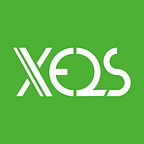Is carbon offset trading the perfect use case for blockchain?
Tokenizing carbon credits will bring an end to rampant fraud, ensuring accountability and a healthier planet.
By: XELS team
A recent all time high for Bitcoin, the rapid expansion of decentralized finance, and the ongoing NFT art boom have made 2021 the most consequential year for blockchain — and we’re only in March. Harkening back to the public interest in blockchain and digital assets last seen during the 2017 “altcoin” boom, global media is once again awash with stories of companies tokenizing everything from real estate to Pokemon-esque collectible characters. Not everything belongs on the blockchain, however, and the renewed spotlight on the space has generated just as many (if not more) skeptics as believers. When it comes to carbon offset trading, however, migrating the current market to blockchain’s distributed ledger technology (DLT) looks like a match made in heaven.
The first carbon offset markets were created in the wake of the 1997 Kyoto Protocol, the first international agreement that sought to address global warming — specifically by reducing carbon dioxide emissions. Countries that joined the protocol agreed to a “cap and trade” arrangement that would theoretically cap emissions at 1990 levels, and allow organizations to trade carbon credits to make up for the excess. Generally, carbon credits are used to fund projects that actively reduce the hard caused by greenhouse gas emissions, such as planting trees or building solar- and wind-powered infrastructure.
The Kyoto Protocol helped initiate the push toward renewable energy, but largely fell flat due to its exclusion of developing countries and the lack of ratification by the United States. The 2016 Paris Agreement, while non binding, sought to push forward many of the ideas generated by its predecessor. In addition to including all nations, the Paris Agreement set a target of limiting global temperatures to 1.5 degrees celsius above pre-industrial levels.
Today, there are two basic kinds of carbon offset markets: mandatory, referred to as “compliance,” and voluntary. Compliance markets are regulated by national, regional, and sometimes international carbon reduction mandates. Voluntary markets enable companies and individuals to lower their carbon footprint by choice.
Since the birth of carbon offset markets, fraud has existed. Fraudsters have been known to sell fake or expired carbon credits, and credit “recycling” fraud can lead to double spending of unretired carbon credits. In 2009–2010, criminal gangs in the UK stole billions of dollars by purchasing carbon credits outside of Britain and selling them to domestic clients, charging VAT but not passing it to the tax authorities. Recycled credits in that scheme were eventually sold to major banks, who were later charged over their involvement in the scheme. Tokenizing carbon credits would allow the industry to maintain open, transparent records — from generation, to sale, to retirement. Double spending is also impossible on the blockchain’s immutable ledger.
XELS is one such eco-conscious blockchain platform that seeks to legitimize carbon markets with DLT. Founded in Hong Kong in 2018, with a team operating primarily out of Tokyo, Japan, the company is tokenizing carbon credits via its eponymous XELS ERC-20 token. The company seeks to offer both compliance and voluntary credits to a worldwide user base — starting with the latter. XELS tokens will be made available to the public via cryptocurrency exchanges, allowing both corporations and individuals to transparently reduce their carbon footprints.
While XELS intends to launch publicly in April 2021 on the Ethereum blockchain, the company is cognizant of concerns over high energy consumption associated with existing DLT infrastructure. In order to practice what it preaches, XELS will migrate to a proprietary low-energy blockchain in the near future. The XELS chain takes a hybrid proof-of-stake (think Ethereum) and proof-of-work (think Bitcoin) approach, enabling users to run it on a standard laptop without the need for electricity-hungry mining rigs with high-powered GPUs.
Read more about XELS and the company’s vision for a greener planet through honest and accessible carbon markets at www.xels.io.
